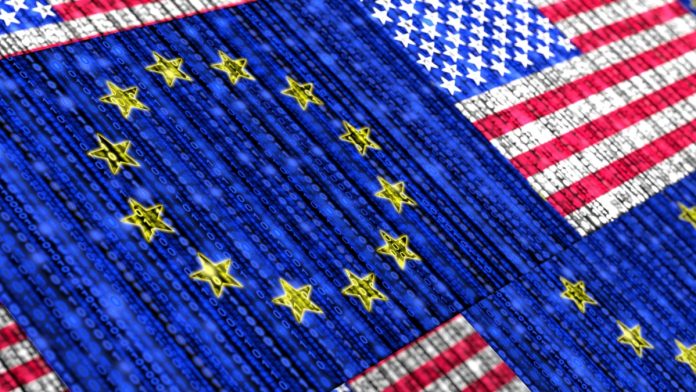EU and US officials have begun informal discussions around consumer financial protection issues. The talks have evaluated key developments in payments and financial services, with respective parties noting similar trends on both sides of the Atlantic.
The Director of the US Consumer Financial Protection Bureau (CFPB), Rohit Chopra, the and European Commission’s Commissioner for Justice and Consumer Protection, Didier Reynders, have scheduled three follow up meetings to the initial talks, focusing on three areas of consumer protection.
Buy Now, Pay Later (BNPL) and Over-Indebtedness, digital payments access and fraud and Big Tech companies in consumer finance and artificial intelligence (AI) are the three main areas of the transatlantic discussion.
Perhaps with the exception of Open Banking, these three have been some of the biggest talking points in European and North American payments in recent years. AI has become an area of focus for several regulators and companies are becoming more and more aware of the benefits it can bring to businesses.
BNPL, meanwhile, has become an increasingly popular payment method for both US and EU customers, and concerns have been raised about the impact this could have on personal debt. Lastly, Big Tech’s increasingly prominent role in payments, and the potential implications this has for competitiveness and antitrust, is a major area of regulatory interest.
In a statement, Reynders and Chopra explained: “Consumer finance markets across jurisdictions have become increasingly similar over the past decade. It is critical for the US and EU to coordinate on the firms, products, consumer trends, and risks that span the Atlantic. Our staff have shared expertise, best practices, and lessons learned on an important set of issues.
“Jointly analysing the expansion of Big Tech’s financial services offerings, and the attendant risks to consumer privacy and competition, has been highly productive. The evolution of the payments system has been a key focus of such discussions, as Apple, Google, and other firms increase their reach in the market.
“It has also been valuable to compare how firms in our respective markets are deploying AI and expanding the use of automated decision-making methods. In addition, the meetings conducted by our staff have served as a useful venue to monitor the development and growth of new products, like Buy Now, Pay Later.”
Reynders summarised the US and EU’s objectives as to inform consumer decision making, respective financial data and privacy – ensuring that this is not surveilled and misused- and help customers avoid fraud and manipulation.
On BNPL, the EC has expected over-indebtedness in the EU to ‘increase significantly’ in the next 10 years in line with growth of the BNPL sector. The CFPB has been analysing the differences between EU and US BNPL adoption and any associated consumer risks and legal frameworks.
As the home of many Big Tech firms – such as Apple, Google and Meta – the US would arguably be the voice of authority in this area. During talks, the CFPB outlined its efforts to address the risks associated with Big Tech’s role in consumer finance.
The duo have also discussed the issue of fraud in digital payments, and ‘various issues’ relating to Big Tech in finance, with a focus on the payments sector, where methods such as Google Pay and Apple Pay have become widely popular in both countries.
Lastly, on AI, the EC outlined legislative and regulatory developments, such as the passage of last year’s AI Act by the EuUropean Parliament, and the CFPB mapped out how US federal consumer financial authorities are approaching the technology.
AI is being used for a range of purposes in finance and payments, but concerns over its risks, in macroeconomic areas such as employment and also in more specific use cases, are being evaluated by a range of financial authorities.
For example, the UK’s Bank of England has been researching risks, and the country’s AI Safety Institute has signed a bilateral cooperation agreement with its US counterpart. In Canada, Prime Minister Justin Trudeau plans to set up the country’s own AI Safety Institute as part of a multi-billion dollar funding plan.
Moving forward, Chopra and Reynders have made plans for annual principal-level meetings and bi-annual staff level meetings to discuss progress on the areas outlined above, and outline any other emerging priorities.
























